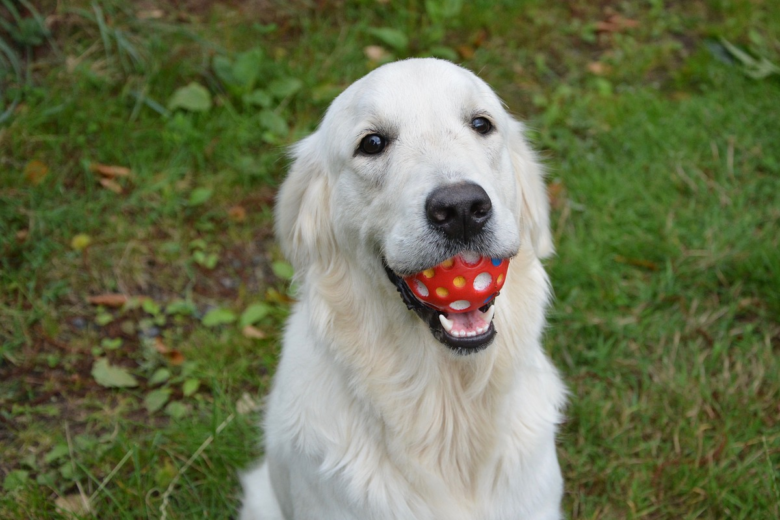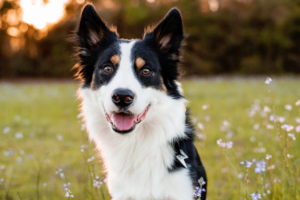Choosing a new furry family member is an exciting but also challenging decision. With so many dog breeds available, each with their own unique characteristics, finding the ideal canine partner can seem like a daunting task. However, with a little thought and research, it is possible to identify the breed that perfectly aligns with your lifestyle, preferences, and needs.
In this comprehensive guide, we’ll explore the essential considerations to help you choose the right dog breed and form a lasting connection with your new four-legged friend.
1. Assess Your Lifestyle:
Choosing the ideal dog breed requires an in-depth analysis of your lifestyle. Consider the space in your home, whether it’s a house with a yard or a compact apartment, and consider your daily routine. Dog breeds vary significantly in terms of energy, exercise requirements, and social interaction. For active individuals who enjoy outdoor activities, breeds like the Labrador Retriever can be ideal partners. On the other hand, if your daily life is calmer, smaller breeds, such as the French Bulldog, may adapt better. By aligning the characteristics of the breed with your lifestyle, you create the foundations for a harmonious coexistence.
Also, take into account the stability of your environment. Some breeds adjust better to frequent changes, while others prefer a more predictable routine. Understanding your rhythm of life is crucial to choosing a dog that suits your circumstances, ensuring a happy and healthy coexistence.
When adopting a dog, also consider the breed’s life expectancy. Some breeds live longer than others, which can influence the longevity of your partnership. Speak to veterinarians and breeders for information about the life expectancy of your chosen breed, ensuring you are prepared for the long-term commitment.
2. Consider Exercise and Socialization Needs:
Exercise and socialization needs are crucial aspects when choosing the ideal dog breed. Each race has specific requirements in these two domains. Some breeds, like the Border Collie, require intense physical activity and regular mental stimulation to thrive. In contrast, calmer breeds, such as the Basset Hound, may prefer a less hectic routine. Understanding your own exercise and social interaction preferences is essential to ensuring the breed you choose is compatible with your lifestyle, avoiding future conflicts.
In addition to physical activities, socialization is crucial to the emotional well-being of your future canine companion. Some breeds are naturally sociable, getting along well with children, other pets and visitors, while others may be more reserved. By considering your own exercise and social interaction preferences, you will be ensuring that the breed you choose is a good match for your way of life.
When planning your dog’s daily activities, think about involving the whole family. Children can participate in games and walks, strengthening the bonds between the pet and family members. Collaboration in everyday responsibilities creates a shared experience, enriching the dog’s life and strengthening family bonds.
3. Understand Breed Characteristics:
Each breed of dog has unique characteristics that go beyond physical appearance. Understanding these peculiarities is essential for a successful coexistence. Breeds like the Shih Tzu, known for their lush coats, require regular brushing care to maintain their beauty and health. Additionally, breeds like the Doberman can have a protective disposition and require consistent training from an early age.
In addition to physical characteristics, consider the genetic and behavioral predispositions associated with the breed. Some breeds may have stronger hunting instincts, while others may be more prone to specific health conditions. Thorough research into the characteristics of your chosen breed will help you anticipate potential challenges and allow you to provide appropriate care for your new furry friend.
By knowing the specific characteristics of the breed, you will be better prepared to provide an environment that meets your dog’s needs and preferences. This in-depth understanding will also make it easier to train and create an environment that promotes your canine companion’s physical and emotional well-being.
3.1. Coat Care:
When choosing a breed with a specific coat, it is essential to be aware of the necessary care. Breeds like the long-haired Collie or Siberian Husky require regular brushing to prevent tangles and maintain healthy skin. Understanding the demands of coat care will allow you to provide appropriate care, ensuring your dog’s comfort and happiness.
3.2. Behavioral Disposition:
In addition to physical characteristics, the breed’s behavioral disposition plays a crucial role in daily coexistence. Some breeds are naturally more active and may require more mental and physical stimulation. Others may have a predisposition to protective behaviors, making training and socialization essential. By understanding the behavioral disposition of your chosen breed, you will be better prepared to provide the appropriate environment and training.
By knowing the specific characteristics of the breed, you will be better prepared to provide an environment that meets your dog’s needs and preferences. This in-depth understanding will also make it easier to train and create an environment that promotes your canine companion’s physical and emotional well-being.
4. Consider the Desired Personality:
The personality of your future dog is a crucial factor in the quality of coexistence. Some breeds, like the Cocker Spaniel, are known for their cheerfulness and friendliness, while others, like the German Shepherd, can be more focused and protective. Assessing your desired personality not only makes choosing a breed easier, it also contributes to a deeper emotional connection.
Ask yourself what personality traits you value in a pet. If you are looking for a loyal and affectionate companion, breeds like the Golden Retriever may be ideal. If you are looking for an independent and more reserved dog, breeds like the Basenji may be more suitable. Also consider the dog’s training needs and willingness to learn and interact. By aligning your personality expectations with the characteristics of the breed, you will be laying the foundations for a balanced and enriching relationship.
Assessing the desired personality also involves understanding the compatibility between the dog’s temperament and the home environment. If your home is busy and full of activity, a more extroverted breed may adapt better. On the other hand, if you prefer a calmer environment, a calm breed may be more suitable. The harmony between the dog’s personality and the family’s lifestyle will contribute significantly to a satisfactory coexistence.
5. Consult Professionals and Experienced Owners:
Seek guidance from professionals and experienced owners to gain valuable information about the breeds you are considering. Veterinarians, dog trainers and ethical breeders have practical knowledge about the specific needs of each breed. They can provide advice on care, training and health, contributing to an informed decision.
Additionally, talk to owners who share their experiences with specific breeds. Hearing stories from those who already share their lives with a specimen of the desired breed offers practical insights into what it is like to live with this type of dog. Ask about challenges faced, outstanding characteristics and rewards of daily coexistence. This exchange of valuable information will contribute significantly to your final decision.
When consulting professionals and experienced homeowners, be open to different perspectives and experiences. Each dog is unique, and the dynamic between a pet and its owner can vary. The practical knowledge of these experts and caregivers will contribute to a comprehensive overview, allowing you to make an informed and confident decision.
Conclusion: A Lifetime Partnership:
By choosing the ideal dog breed, you are taking a significant step towards a lasting and rewarding life partnership. By considering your lifestyle, the dog’s needs, breed characteristics and desired personality, you create the foundations for an enriching coexistence. Consulting professionals and experienced homeowners expands your understanding and provides practical information.
Remember, each dog is unique, and the journey you begin is filled with joy, challenges and unconditional love. With patience, commitment and affection, you and your new canine friend will build a special relationship that will enrich your lives for years to come.




